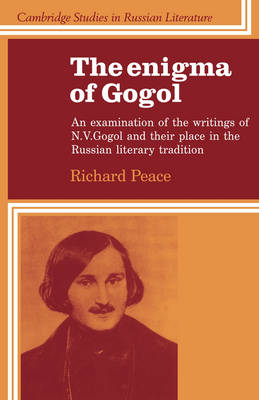Cambridge Studies in Russian Literature
1 total work
Gogol's place in Russian literature is unique. He is Russia's classic comic writer, yet the phrase 'laughter through tears', which has been applied to him, hints at darker and more tragic overtones. One of the most idiosyncratic of writers, his influence has nevertheless been profound. Appearing to shun psychological analysis, he is yet the father of the Russian psychological novel and originator (in his unfulfilled plans for Dead Souls) of the novel of spiritual regeneration brought to fruition by Tolstoy and Dostoevsky. A great innovator in his work for the theatre and widely hailed throughout the nineteenth century (and even today in the Soviet Union) as the exponent of a socially conscious literature championing the underdog, his work has been interpreted quite differently by the Formalist and many present-day Western critics who see the significance of his art residing in its manner, not its meaning. Surveying the complete oeuvre, Professor Peace argues that Gogol has, as a writer, close affinities with the Russian Middle Ages and that his ambiguous position in the great humanist tradition of nineteenth-century Russian literature springs from his attempts to come to terms with the cultural impact of Sentimentalism, and its later development Romanticism. Moreover, misunderstanding of Gogol has been further compounded by a contradiction in his work: on the one hand the striving for national significance and universality; on the other the treatment of art as a form of personal catharsis.
